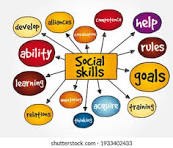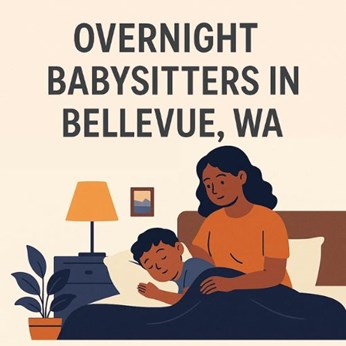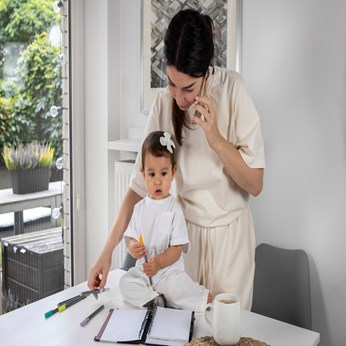Case study: The positive effects of quality early childhood education on social skills development

Social skills are the abilities to communicate, cooperate, and interact with others in appropriate and effective ways. Social skills are essential for children's success in school and life, as they help them form positive relationships, resolve conflicts, and cope with emotions. Social skills also influence children's academic performance, as they affect their motivation, engagement, and self-regulation in learning.
However, not all children develop social skills at the same pace or in the same way. Some children may face challenges or difficulties in developing social skills due to various factors, such as temperament, family background, culture, or special needs. These children may benefit from quality early childhood education (ECE) programs that can support and enhance their social skills development.
Quality ECE programs are those that provide a safe, stimulating, and nurturing environment for young children, where they can interact with caring and responsive adults and peers, and engage in various activities that foster their cognitive, physical, emotional, and social development. Quality ECE programs also have well-trained and qualified staff, low child-staff ratios, and high standards of curriculum and assessment.
In this blog post, we will present a case study of how a quality ECE program in the USA helped a child with social skills development, and how Sulekha Care Services can help you find similar quality ECE programs in your city.
The case of Jacob
Jacob is a four-year-old boy who lives with his parents and younger sister in a suburban area. Jacob's parents enrolled him in a quality ECE program when he was three years old, as they wanted him to have a good start in his education and socialization.
Jacob was a shy and quiet child who had difficulty making friends and expressing himself. He often played alone or with his sister, and avoided interacting with other children or adults. He also had trouble following directions, sharing toys, and taking turns. He sometimes got frustrated or angry when things did not go his way, and threw tantrums or hit others.
Jacob's ECE teachers noticed his social skills challenges and decided to intervene. They used various strategies to help Jacob develop his social skills, such as:
- Providing him with positive feedback and encouragement when he showed signs of social interest or engagement, such as smiling, making eye contact, or saying hello.
- Modeling and teaching him appropriate social behaviors and language, such as greeting others, asking for help, saying please and thank you, apologizing, and complimenting.
- Creating opportunities for him to interact with other children and adults, such as arranging play dates, joining group activities, and inviting guest speakers.
- Using stories, songs, games, and role plays to illustrate and practice social skills, such as listening, cooperating, negotiating, and problem-solving.
- Using puppets, dolls, or stuffed animals to help him express his feelings, thoughts, and needs, and to empathize with others.
- Using visual aids, such as pictures, charts, or cues, to remind him of the rules and expectations of social situations, such as waiting in line, raising his hand, or taking turns.
- Using rewards, such as stickers, stamps, or certificates, to reinforce his positive social behaviors and achievements.
After one year of attending the quality ECE program, Jacob showed significant improvement in his social skills. He became more confident and outgoing, and made several friends in his class. He learned to communicate and cooperate with others, and to handle his emotions better. He also became more interested and involved in learning, and showed progress in his academic skills, such as reading, writing, and math.
Jacob's parents were very happy and proud of his development, and thanked his ECE teachers for their support and guidance. They also continued to reinforce his social skills at home, by spending quality time with him, reading books, playing games, and having conversations.
How Sulekha Care Services can help you
If you are looking for quality ECE programs or day cares in your city, you may be wondering where to start. One of the best ways to find quality ECE programs and day cares is to use Sulekha Care Services, an online portal that connects care seekers and care givers in the USA and Canada.
Sulekha Care Services helps you find and compare best day care centers in and around your city, such as preschools, daycares, kindergartens, and after-school programs. You can search for ECE programs based on various criteria, such as location, budget, timings, curriculum, facilities, ratings, and reviews.
Sulekha Care Services helps you save time, money, and hassle by connecting you with the best ECE programs and day care centers in your city.
Conclusion
Quality ECE programs can have a positive effect on children's social skills development, as they provide a supportive and stimulating environment for children to learn and practice social skills. Quality ECE programs can also help children with social skills challenges, such as Jacob, to overcome their difficulties and improve their outcomes. To find best day care centers offering ECE programs in your city, you can use Sulekha Care Services, an online portal that connects care seekers and care givers in the USA and Canada.
Take the next step toward your goals
Share your requirement and find the best care providers in your area
-
Looking for a caretaker’s job? Build your profile and get in touch with families in your vicinity.
-
Discover nannies, babysitters, cooks, housekeepers, pet sitters, and elder care under one roof.
-
Get all the support you need to run a successful care center.
-
Search for appropriate centers near you depending on your needs.
Care Corner Insights: Blog Library

Overnight Babysitters in Bellevue, WA for Business-Travelling NRI Parents: Safety & Policies
For many NRI parents living in Bellevue, WA, frequent business trips are a reality. While traveling, one of the biggest concerns is ensuring your children are safe, cared for, and emotionally supported during overnight stays. Overnight babysitters ca

Indian Home-Style Cooks in Queens, NY: Tiffin-Style Weekly Meal Prep from Your Kitchen
Queens, NY, is home to one of the most diverse food cultures in the country, and Indian cuisine holds a special place among families looking for authentic, comforting meals. While restaurant takeout is convenient, nothing compares to the taste and nu

Baby Sleep Problems: What is Sleep Regression and How to Handle It
If you’re a parent, you know that baby sleep is one of the greatest mysteries of life. One day your little one is snoozing like an angel, and the next day they’re suddenly waking up every hour, fussing, or refusing to nap. Before you panic, there’s a

What is Validation Therapy? A New Approach to Dementia Care
Caring for loved ones with dementia is one of the most emotionally challenging journeys a family can face. Traditional methods often focus on correcting memory lapses or redirecting confused thoughts—but that can sometimes lead to frustration, stress

What is a Part-Time Nanny and Do You Need One
Parenting is a beautiful journey, but let’s be honest—it can also be exhausting! Between work deadlines, household chores, and family responsibilities, sometimes there just aren’t enough hours in a day. That’s where part-time nannies step in, offerin

Part-Time Housekeeper Hiring in Alpharetta, GA: Weekly Schedules, Pricing, and Must-Do Tasks
Keeping a home spotless while balancing work, family, and personal commitments can be overwhelming. For families and professionals in Alpharetta, GA, hiring a part-time housekeeper is one of the most practical solutions. Whether you need help once a

Affordable Daycares in Irving, TX with Indian Menu Options: Parent Reviews & Enrollment Tips
Finding the right daycare for your little one is never an easy decision—especially if you’re looking for one that fits your budget and offers familiar food options like an Indian-inspired menu. For parents in Irving, TX, the good news is that several

Can Babies Sleep on Their Side? Tips for Safe Baby Sleep
When it comes to newborns, every parent worries about the smallest details—how they sleep, what they wear, even which way they turn their tiny heads. One common question that pops up is: “Can babies sleep on their side?” The short answer? Not recom

8 Benefits of Hiring a House Cleaner for Your Home
Let’s be honest — keeping a home sparkling clean while juggling work, family, and daily life can feel like a full-time job in itself. That’s where professional house cleaners step in, turning the chaos into calm. If you’ve been debating whether to br

How to Care for a Gassy Baby? What’s Normal and what’s not – Expert Advice
If you’re a new parent navigating the world of burps, bubbles, and baby fussiness—welcome to the club! Gas in babies is incredibly common, especially in the first few months. But how do you know what’s normal and when it’s time to call in expert help